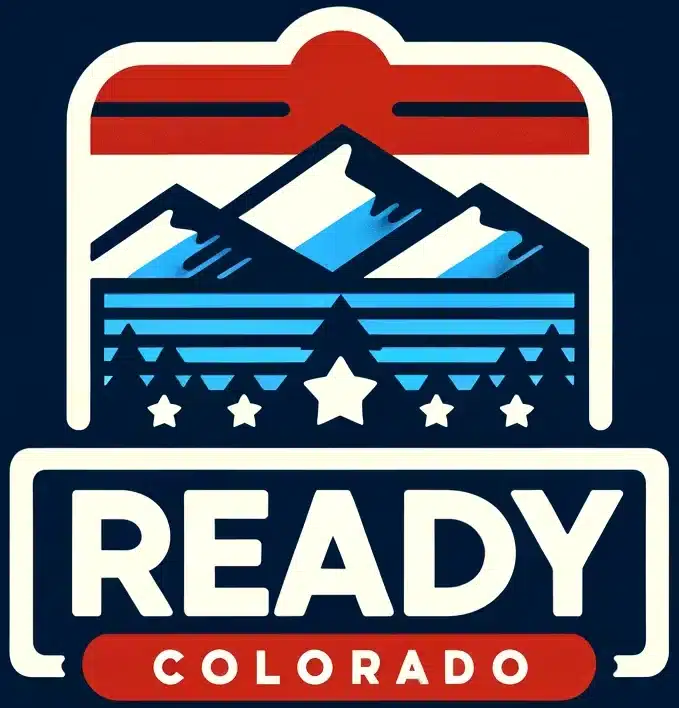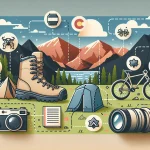For those planning a trip from outside the state, understanding the legal framework and out-of-state travel requirements to Colorado is crucial for a smooth and enjoyable visit. As of 2023, over 86 million visitors traveled to Colorado, United States, contributing $24.2 billion to the state’s economy.
In This Article
TL;DR
- Familiarize yourself with state and federal laws affecting out-of-state travelers to Colorado.
- Be aware of current health and safety protocols, including COVID-19-related requirements.
- Explore Colorado's unique cultural, recreational, and educational opportunities during your visit.
Legal Framework for Out-of-State Travelers to Colorado
Current Legislation and Regulations
Colorado follows United States federal regulations regarding travel documentation and identification. U.S. citizens entering Colorado from another state are not required to present a passport, but a valid United States government-issued ID, such as a driver’s license or state Real ID card, is necessary.
International visitors must adhere to U.S. visa and passport requirements for global entry. It’s essential to check the most current information from the U.S. Department of State before international travel.
Health and Safety Protocols
Currently, there are no COVID-19 related travel restrictions or requirements for domestic travelers entering Colorado. However, it’s always a good idea to check for any updates from the Colorado Department of Public Health and Environment before your trip.
Transportation: State-To-State And Global Entry Points
Colorado is well-connected by air, with Denver International Airport serving as the main hub. The state also has a network of highways and railroads, making it easily accessible by car or train.
When driving into Colorado, be prepared for potential road closures or detours due to weather conditions, especially during winter months.
Life in Colorado: What Travelers Need to Know
Cultural and Recreational Opportunities
Colorado offers a vibrant arts and culture scene, with numerous museums, galleries, and performing arts venues throughout the state. The state is also known for its stunning natural beauty and outdoor recreation opportunities, from hiking and skiing to rafting and rock climbing.
Educational Opportunities
Many of Colorado’s universities and institutions offer short-term courses, workshops, and learning experiences for visitors. These programs cover a wide range of subjects, from environmental studies to history and art.
Accommodation and Living Essentials
Visitors to Colorado have a variety of accommodation options, including hotels, motels, vacation rentals, and camping facilities. It’s essential to book in advance, especially during peak tourist seasons.
Colorado’s cities and towns have well-developed public transportation systems, making it easy to navigate without a car. The state also has a robust healthcare infrastructure, with numerous hospitals and medical facilities.
Learning Through Travel: Colorado’s Unique Offerings
Environmental Education and Conservation Programs
Colorado is home to several national Colorado parks, forests, and wildlife refuges, offering opportunities for visitors to learn about conservation efforts and participate in environmental education programs.
Historical Sites and Museums
The state boasts a rich history, with numerous historical landmarks and museums showcasing its mining, railroad, and pioneer heritage. These sites offer unique learning experiences for visitors interested in Colorado’s past.
Adventure and Outdoor Learning
The state’s diverse landscapes and Colorado Parks provide the perfect setting for adventure and outdoor learning. Many organizations offer courses in outdoor skills, survival techniques, and adventure sports.
Navigating Legal and Logistical Challenges
Compliance with Local Laws
Familiarize yourself with Colorado’s laws and regulations, especially those related to driving, alcohol consumption, and recreational marijuana use. Resources for legal assistance and information are available through the Colorado Bar Association.
Travel Insurance and Emergency Preparedness
Consider purchasing travel insurance to protect yourself from unexpected events or emergencies. It’s also a good idea to have emergency contacts and a preparedness plan in place before your trip.
FAQ
What are the current COVID-19 travel requirements for entering Colorado?
Currently, there are no COVID-19 related travel restrictions or requirements for domestic travelers entering Colorado. However, it’s always a good idea to check for any updates from the Colorado Department of Public Health and Environment before your trip.
Do I need any specific documents to travel to Colorado from another state?
U.S. citizens entering Colorado from another state are not required to present a passport, but a valid government-issued ID, such as a driver’s license or state Real ID card, is necessary.
Are there any specific health and safety protocols I should follow while in Colorado?
While there are no mandatory health and safety protocols for visitors, it’s always a good idea to practice good hygiene, such as washing your hands frequently and covering your mouth and nose when coughing or sneezing.
Can out-of-state visitors enroll in educational programs or courses in Colorado?
Yes, many of Colorado’s universities and institutions offer short-term courses, workshops, and learning experiences for visitors. These programs cover a wide range of subjects, from environmental studies to history and art.
What are some must-visit historical sites and museums in Colorado for a learning experience?
Some notable historical sites and museums in Colorado include the Colorado State Capitol, the Denver Art Museum, the Buffalo Bill Museum and Grave, and the Colorado Railroad Museum. These sites offer unique insights into the state’s rich history and heritage.






